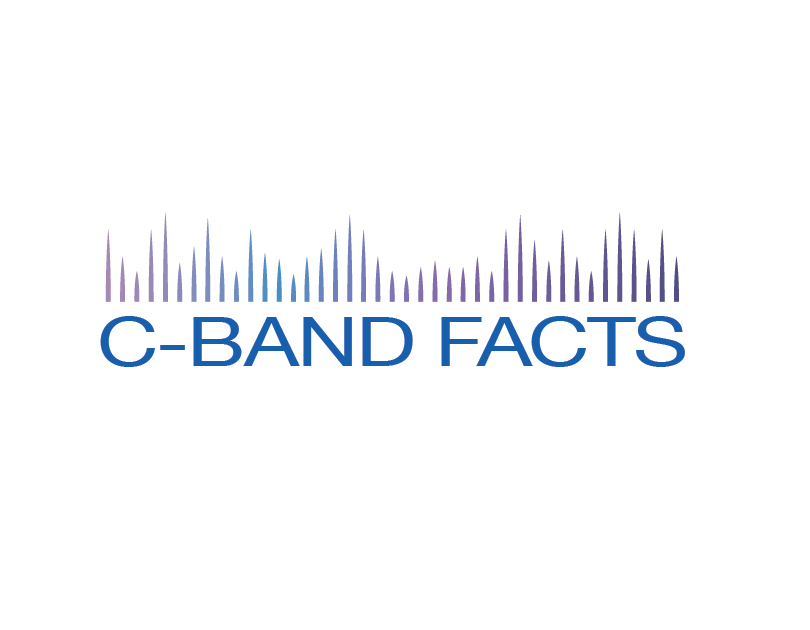C-BAND Spectrum: Myth vs Fact

Repurposing C-band spectrum for mobile broadband deployment will help America win the race to 5G, as other countries study repurposing their own mid-band spectrum for internet use. A number of groups, including the C-Band Alliance (CBA), claim that the Federal Communications Commission (FCC) should allow for a “private-sale” of this critical segment of spectrum, instead of having the FCC repurpose the spectrum to help close the digital divide. While the CBA claims this is a market-based approach, this could not be further from the truth. In reality, the CBA wants the FCC to allow the monetization of taxpayer-owned C-band spectrum through private sales that won’t benefit taxpayers. Not only would the CBA’s scheme deny billions – perhaps tens of billions of dollars – in proceeds owed to the U.S. Treasury, but it would also inevitably result in years of litigation and endless delays in 5G deployment.
Myth #1
CBA has the right and ability to sell the C-band spectrum on the secondary market because the four satellite companies that comprise it own the spectrum.
FACT
CBA’s members do not own the C-band spectrum.In fact, the spectrum was licensed to these companies for free by the U.S. government. The CBA companies operate the spectrum, but only at the pleasure of the U.S. Government, consumers, and taxpayers and always under the supervision of the FCC. The CBA lacks the power to dispose of the spectrum as it wishes. It also lacks the power to repurpose it on its own. And yet, the CBA continues to lobby the FCC to allow it to sell that which it does not own.
Myth #2
The CBA plan to sell the C-Band spectrum on the secondary market is the option most likely to quickly achieve 5G deployment.
FACT
In fact, the CBA plan, if approved, would result in a morass of litigation, keeping the C-band spectrum locked up and unusable for 5G deployment…or anything else. The structure of a secondary market-sale endows the seller with the authority to determine who buys. Those who hold the current license – in this case, all four of CBA’s members – are incented to sell only to the highest bidder, side-lining those who may be better equipped, but less financed. This is especially true, given that the spectrum is useless to a prospective buyer absent coordination among existing licensees to ensure that the band is sufficiently clear. The CBA plan doesn’t just welcome litigation, it invites it. The fastest, most efficient way to reallocate the C-band spectrum is through an open, public auction overseen by the FCC. It would be fair, competitive, and completely transparent, and it would be consistent with FCC precedent. The FCC should sell the spectrum in an expedited manner. It would also direct the sale proceeds to the spectrum’s rightful owner, the American taxpayer.
Myth #3
The CBA plan would lead to the privatization of spectrum, which would result in the most efficient, cost-effective use of resources currently owned by the government.
FACT
While privatization almost always results in the best allocation of resources, the CBA plan is no ordinary privatization scheme. Historically and across sectors, privatization has entailed prospective private owners paying the government to transfer resource ownership to them, making taxpayers whole in the process and facilitating the rise of market pricing. Privatization in the real estate sector, for instance, has consisted of building managers/developers compensating taxpayers for the privilege of taking over the title of a valuable resource. When prospective owners are not required to compensate the current owner, incentives are inverted and the perceived payoff associated with entering into contracts with the government increases. Therefore, botched “privatization” in fact increases the clout of government.
Myth #4
The CBA plan won’t lead to a “windfall” for its member companies.
FACT
Citizens Against Government Waste (CAGW), which routinely analyzes government programs, issued a reportdetailing the massive taxpayer rip-off posed by the CBA scheme currently before the FCC. CAGW’s conclusion: $60 billion to the CBA member companies and “no guarantee taxpayers would see any of the revenues generated from the sale; incumbent users [of the spectrum] are not assured they will be made whole; and there would be limited FCC oversight.” CBA has stated that they will make a “voluntary contribution” to the U.S. Treasury, which is not nearly enough for the value of the spectrum.








